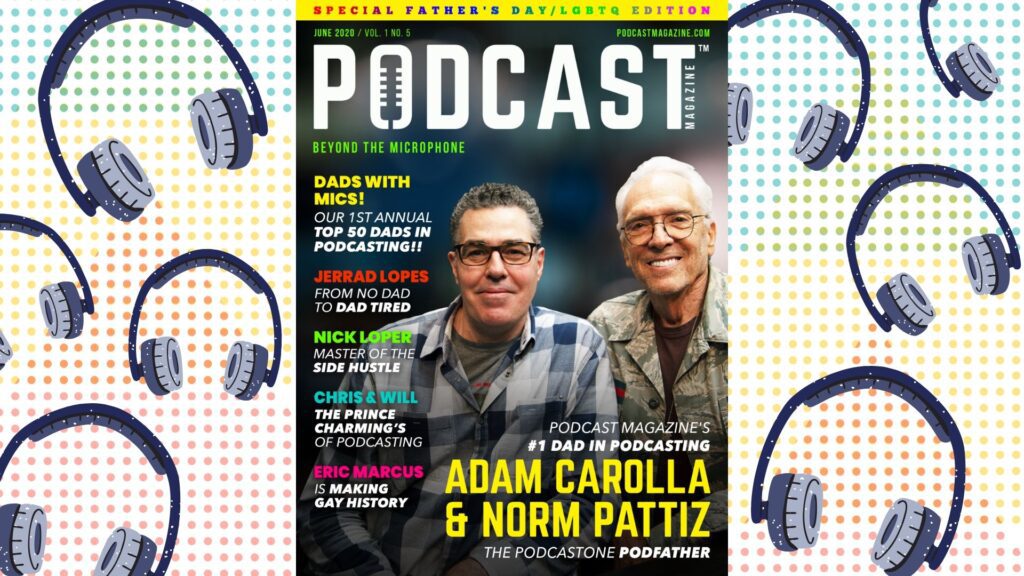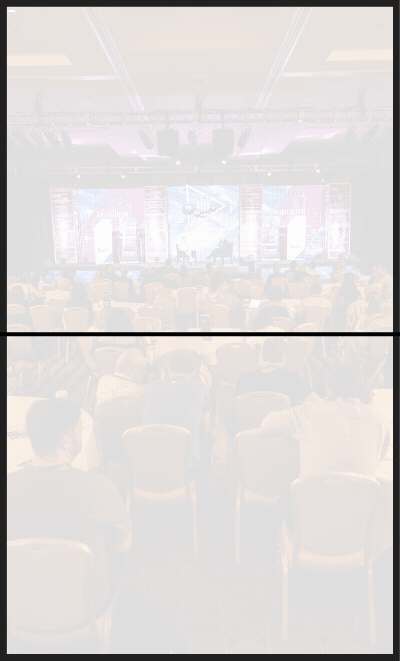

PodMov Daily: Monday, June 8
Episode 221: Your Monday Mix

Monday Q&A: Podcast Network Founder Sheletta Brundidge
In February, Sheletta Brundidge founded a podcast network that turned out to be 20 years in the making. In an impactful Q&A, the Emmy award-winning broadcaster, comedian, and television anchor shares the story of SHEletta Makes Me Laugh, the people behind its 7 shows, and her family that inspires every move forward.
A long career in news media made it clear: “There is little to no diversity on the radio, in television newsrooms or at the daily papers. So black folks kept calling me asking if I could help them get on TV when there was a problem in their community or if there was a big event or celebration happening,” Brundidge says. “In 2020 we have television news stations in Minnesota that don’t have ONE black reporter, newsroom manager, or anchor! Isn’t that sad?” Done waiting, she started building.
Creating resources for her own communities, Brundidge found resources in other podcasters. Spaces like She Podcasts supported SHEletta Makes Me Laugh into the compassionate, powerful force it is today. “That’s the thing about the podcasting community that’s different than news,” she says. “Everybody wants to see everybody else succeed.”
A Reporter Explains: Navigating Social Media Misinformation
Even the most casual commentary on a podcast has a direct line to listeners’ hearts and minds. How can we responsibly navigate the “lies, tricks, and chaos online” when stakes are so high? The Verge Senior Reporter Adi Robertson’s guide can help all people (not just journalists!) think through swirling rumors and headlines.
Is it “the kind of thing that’s easy to furiously retweet without thinking”? Maybe “a story seems totally ridiculous — or perfectly confirms your beliefs.” A quick inspection is worth your time. Robertson offers “a system for slowing down and thinking about information — whether that information is true, false, or something in between.”
We’ve all become invested in stories that turn out to be misleading, which social media often amplifies unchecked. Robertson’s tips and tricks will help podcasters join an informed conversation: “Getting things right is more interesting and valuable than just confirming your beliefs or scoring points online.”

June's Podcast Magazine: Celebrating Dads and LGBTQ Podcasters
If you love podcasts, you’ll love Podcast Magazine.
Each month, Podcast Magazine takes you “Beyond The Microphone” with today's leading podcasters and introduces you to dozens of under-the-radar shows you may not be aware of, but should be listening to.
June's issue offers more than a dozen independent ratings and reviews, this month's Podcast Magazine Hot 50, highlights numerous rockstars of the LGBTQ podcasting community, and reveals the first annual Top 50 Dads In Podcasting!
Adam Carolla & Norm Pattiz of PodcastOne, Nick Loper of The Side Hustle Show, Eric Marcus of Making Gay History, Jarrad Lopes of Dad Tired, Chris & Will of the Chris & Will podcast, the squad from My Brother, My Brother & Me, Ali Brown of Glambition Radio and many others are featured.
Click here to access every issue of Podcast Magazine — the only magazine dedicated to podcast fans, covering the world of podcasts and podcast culture.
Here's what else is going on:
- Safety first: NPR audio engineer Sean Phillips explains how to protect, clean and sanitize recording equipment without sacrificing sound quality. After all, “you don’t want to wave unprotected gear in an interviewee’s face — for everyone’s sake.”
- Chart breaker: Edison Research has released its Top 10 Podcast ranker for 2020’s first quarter. Measured by reach, not download numbers, The Joe Rogan Experience remained at #1, followed by The Daily, This American Life, and Crime Junkie.
- Splitting tips: The recently launched subscription service Podhero aims to offer creators an alternative to ads and Patreon. Founder and CEO Pete Curley explains how the model divides and shares users' monthly fees among the shows they support.
- Ever louder: “How do you cover a nationwide outcry?” asks Michael Barbaro, host of The New York Times' The Daily. “The answer, we decided, is with a lot of voices.” Barbaro describes the evolving, urgent composition of episodes in the midst of unrest.







Join the Movement